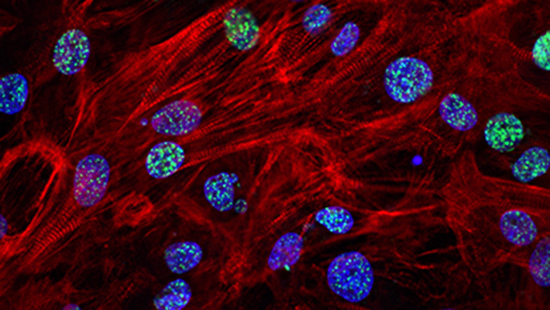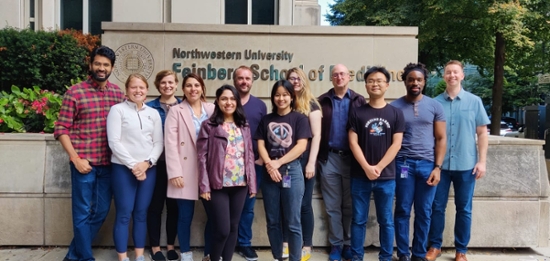Induced pluripotent stem cell models for pharmacogenomics.
The Burridge Lab
The Burridge lab works in the field of pharmacogenomics (precision medicine) using human induced pluripotent stem cells to study cardio-oncology and cardiovascular disease modeling. We also have projects related to large-scale differentiated cell production for regenerative medicine, hiPSC models of cancer, cultivated meat, and synthetic biology.
We specialize in large-scale hiPSC projects that required reprogramming, sequencing, editing, differentiating and phenotyping hundreds of hiPSC lines.
We are responsible for a number of firsts including: the first directed cardiac differentiation protocol (Burridge et al., 2006), the first non-integrating reprogramming of blood to iPSC (Burridge et al., 2011), the first chemically defined differentiation protocol (Burridge et al., 2014), the first demonstration that doxorubicin-induced cardiotoxicity is a genomic disease (Burridge et al., 2016), the first cost-effective method of culturing iPSC (Kuo et al., 2020 and Lyra-Leite et al., 2023), the genomic basis of predisposition to doxorubicin-induced cardiotoxicity (Magdy et al., 2021 and 2022), and most recently the maturation of hiPSC-CMs (Fetterman et al., 2024).
Our Work
Our research program is focused on using induced pluripotent stem cells (iPSC) in pharmacogenomics and disease modeling. Applying a combination of hiPSC culture, tissue engineering, sequencing, high-throughput assays and drug screens, we can establish the genetic cause of a patient's specific drug response and use this information to discover new drugs.


Our Team
Meet the Burridge lab team members. We welcome requests for information about our work and collaboration opportunities.